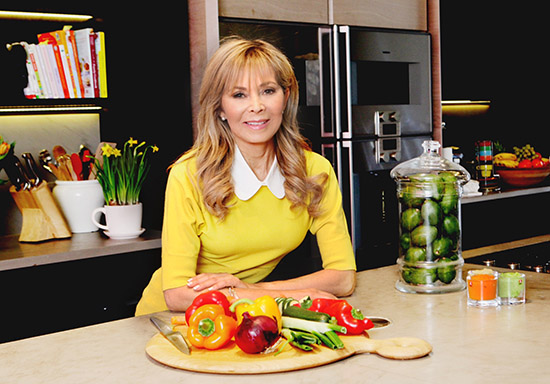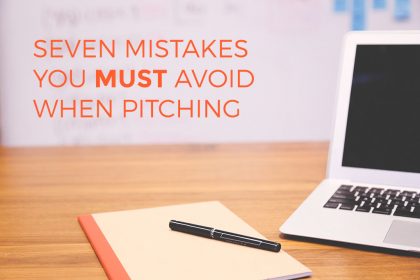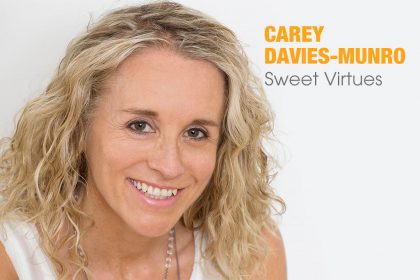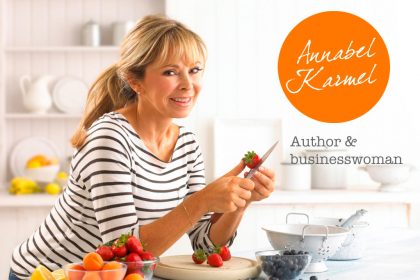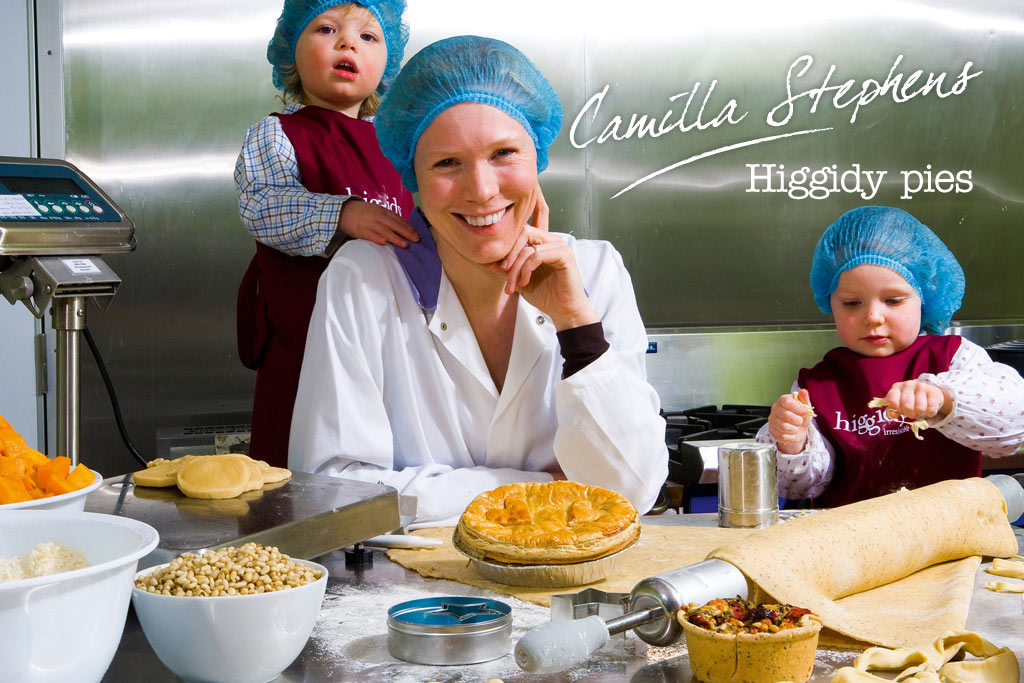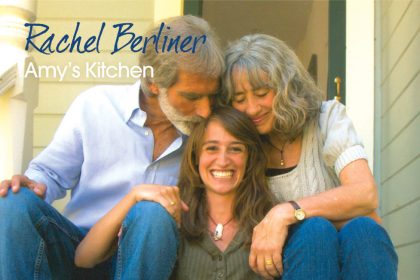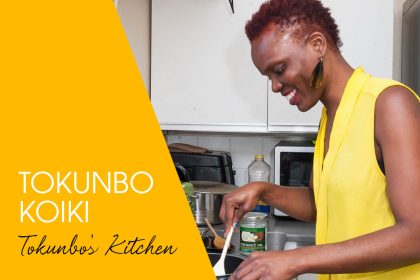Why Annabel Karmel has written a new book for mumpreneurs!
Last year we interviewed Annabel Karmel to find out what inspired her to launch her career, and what made her so successful. Now she’s back with a brand new book designed to help other mumpreneurs build their own successful businesses.
What’s your new book about?
I’m on a mission to empower mums wanting to become their own boss, and my brand new book Mumpreneur: The complete guide to starting and running a successful business is filled with practical advice and inspiring stories to help you get started.
After building my business from scratch at the kitchen table, I’m now using my wealth of experience in juggling the demands of work and motherhood to help equip other mums with the confidence, skills and tools to set up their own businesses.
My new book reveals the secrets to my success – as well as insider tips and learnings from top business leaders and working mothers, including Chrissie Rucker MBE, founder of The White Company, Wahaca’s Thomasina Miers, and Nails Inc founder Thea Green.
What inspired you to write it?
As childcare costs continue to rise, building a business with a family in tow has never been more attractive. In fact, research from our book partner, Direct Line for Business found that two thirds of mums would love to run a business from home.
Having children doesn’t mean a full stop at the end of your CV, and I’m regularly quizzed by mums as to how I set up and built my business. There are so many mums out there wanting to reach for their career dreams and become their own boss, and my book is very much an inspiring, practical guide to get them on track.
Shattering the glass ceiling with a changing bag in tow is no longer limited to the realms of fantasy – and the stats prove it; the number of self-employed women is rising at nearly three times the rate of men – there are now more than 1.2 million self-employed women in full and part-time work and 300,000 of these are working mothers – and growing!
Who is it for, and how will it help them?
It’s designed for women – especially mothers – who want to do something for themselves and run a business. Whether they’ve started-up, have the seed of an business idea, or simply have the inclination to want to do something new, this is an inspiring read filled with first-class advice, tips and practical tools.
What’s inside – what can mums expect to learn?
From believing in yourself and your idea, to finding a niche, embracing your failures, and taking on investment, each chapter embraces a different ‘ingredient’ for success to help mum-based enterprises set-up, grow and flourish.
And each section is peppered with quality advice from my some of the UK’s most successful women. Together they form my Kitchen Cabinet – a resourceful and inspirational team brimming with fresh ideas, insights and practical advice to give other mums the confidence to know where to start.
Where can mums buy a copy of your book?
My book can be bought here. And for more information and inspiration, visit my website. You’ll find tips, advice and plenty of inspiring stories to help you make it as a mumpreneur.
You’re a phenomenally successful author of recipe books. How different was it writing a business book?
It was different but hugely rewarding. It actually felt like a natural step for me. For over two decades I’ve blazed my way through challenges, stumbles and set-backs whilst juggling family life to make it as a business owner, and this was my chance to share my learnings and inspire other mums to follow their passions.
It was also humbling to have so many amazing businesswomen come on board to contribute with their wisdom. Their advice is priceless in inspiring women who want to do something for themselves, but don’t have the self-belief or skills to turn their pip dreams into a reality.
What qualities do you think a successful mumpreneur needs?
It takes real confidence to return to start-up a business after having children – and self-belief is absolutely vital in order to succeed. Confidence is just as important as competence – if not more so.
A successful mumpreneur will also have a compelling story – every smart business needs one. Having a genuine, emotive story connects people with brands. That ‘why’ behind what you are offering not only gives people a reason to connect with you, but it is what will fuel your passion to make you want to succeed.
Most people also think that being an entrepreneur means you have to come up with a unique invention. But that’s not the case. You don’t have to pioneer something new; you just need to do something better than anyone else – something that outshines your competitors.
It’s also important to make the most of your networks. You’ve got to be willing to go out into unfamiliar situations; be unafraid to talk to people who have knowledge and experience and, above all, be prepared to listen. As Dale Carnegie said “you can make more friends in two months by becoming interested in other people than you can in two years by trying to get people interested in you.”
What have you found hardest about growing a successful business while raising a family?
Being a mum takes serious multitasking and if you throw a business baby into the mix you have even more balls to juggle.
The ability you have to make choices as a mumpreneur is empowering but not necessarily guilt free. Inevitably there will be times when you are with your children and feel that you should be working, and vice versa.
No combination of being a working mum is worry-free so my advice would be to try to keep the guilt in check – it is a waste of energy and mental capacity. Focus on the positive benefits of being your own boss and value the time you do have with your children.
And what’s your proudest business moment?
Back in 2006, I was awarded an MBE in the Queen’s Birthday Honours for my outstanding work in the field of child nutrition. I didn’t believe it until I saw my name in the newspaper. I’m passionate about making a difference to people’s lives, and this award made me realise that there was a lot more that I wanted to do.
One of my biggest business successes has also been turning my popular recipes from my books into quality supermarket food ranges. There will always be times when cooking from scratch isn’t feasible, so I worked hard to create baby, toddler and children’s ranges that taste just like home and count towards a child’s 5-a-day.
My aim has been to be there at every age, stage and occasion to support mums – and my mumpreneur book is an exciting new step towards helping mums in their own lives as well as their child’s.
Who inspires you?
Helena Morrisey, CEO of Newton Investment Management has £51 billion of assets under her management. She is also the mother of nine children. Six girls and three boys ranging in age from 6-23.
She says her daily routine includes pitches to clients, transatlantic phone calls, trips to school plays and doing the ironing – now that’s a busy schedule!
She is also the founder of the 30% Club campaigning to make UK boardrooms 30% female by 2015.
I’d also say that my mother is an inspiration. She is a wonderful woman with an amazing work ethic – she is still busy working now as an architect and interior designer.
And finally, in your experience, what are the three most important ingredients for business success?
1) Believe in yourself
Self-doubt is damaging and it needs to be conquered. The more you believe in yourself and in your chances of succeeding, the more likely you are to do just that.
Of course, we all have doubts from time to time – the danger is if those doubts spiral out of control, creating unnecessary anxiety and negative self-limiting beliefs which prevent us from doing something that we really want to do (and, deep down, know that we can do).
2) Find a niche
Starting a business doesn’t mean inventing something new. Take a look around you in your everyday life; we are surrounded by products and services that could be made better. Focusing on a small section of a marketplace helps you to connect with and engage with a specific audience.
My niche was providing nutritious and tasty recipes for babies and children – it’s from building credibility in this area that I’ve been able to expand.
3) Treat failure as a stepping stone to success
The opposite of success isn’t failure, it is not trying. If you seldom fail there is a good chance you’re playing it too safe. Failure rarely feels fun at the time but the lessons it teaches may not take long to become apparent, and are likely to lead you on to greater successes in the end.
During fleeting periods of failure remember that you are in good company – Marilyn Monroe’s first contract with Columbia Pictures expired because they told her she wasn’t pretty or talented enough to be an actress. She ended up becoming one of the most iconic actresses and sex symbols of all time.
Mumpreneur (published by Vermillion and sponsored by Direct Line for Business) is out now. Check out Annabel’s Mumpreneur resource hub at www.annabelkarmel.com, or connect on Twitter and Facebook.


